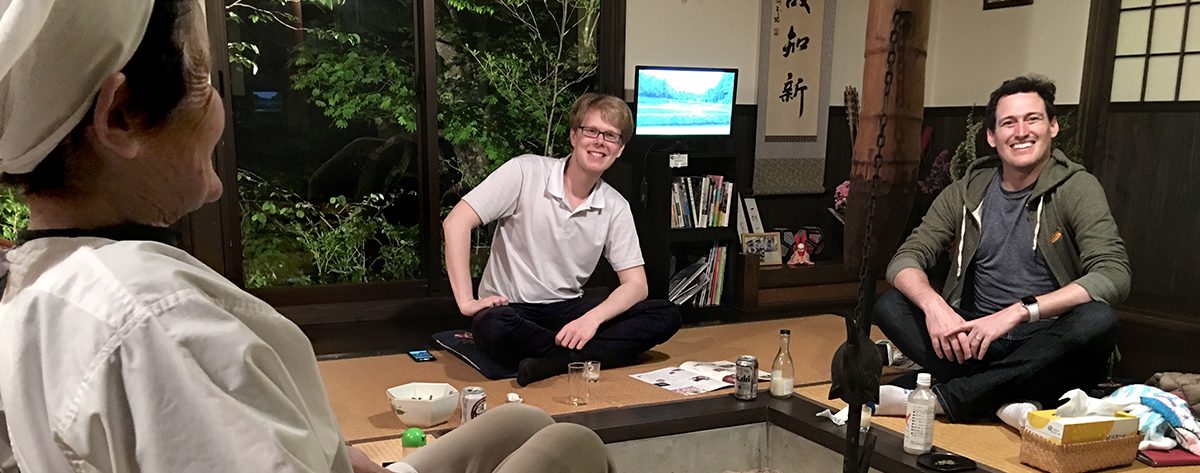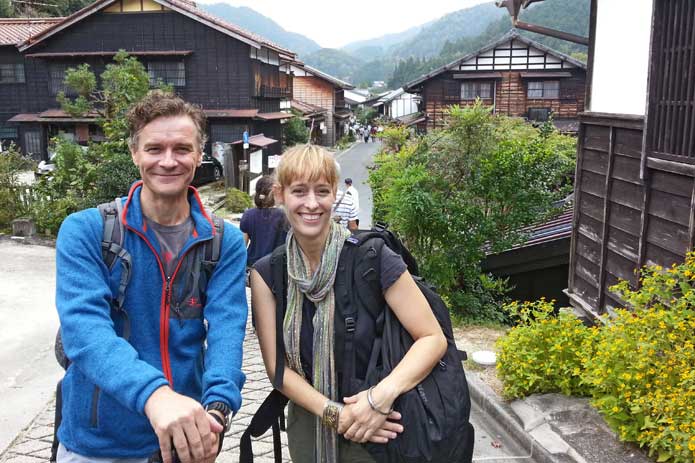At the end of July, I was the moderator for a British Chamber of Commerce in Japan event on the theme of responsible tourism—an engaging topic for someone who has been pondering the theme of responsibility from various angles in recent activities in the Japanese countryside.
Since 2014, I have been working with representatives of Nakatsugawa, a remote mountain community of a few hundred people in the town of Iide in Yamagata Prefecture. For the first two years, I was serving as a government-funded consultant whose job was to identify new ways to encourage more non-Japanese to visit.
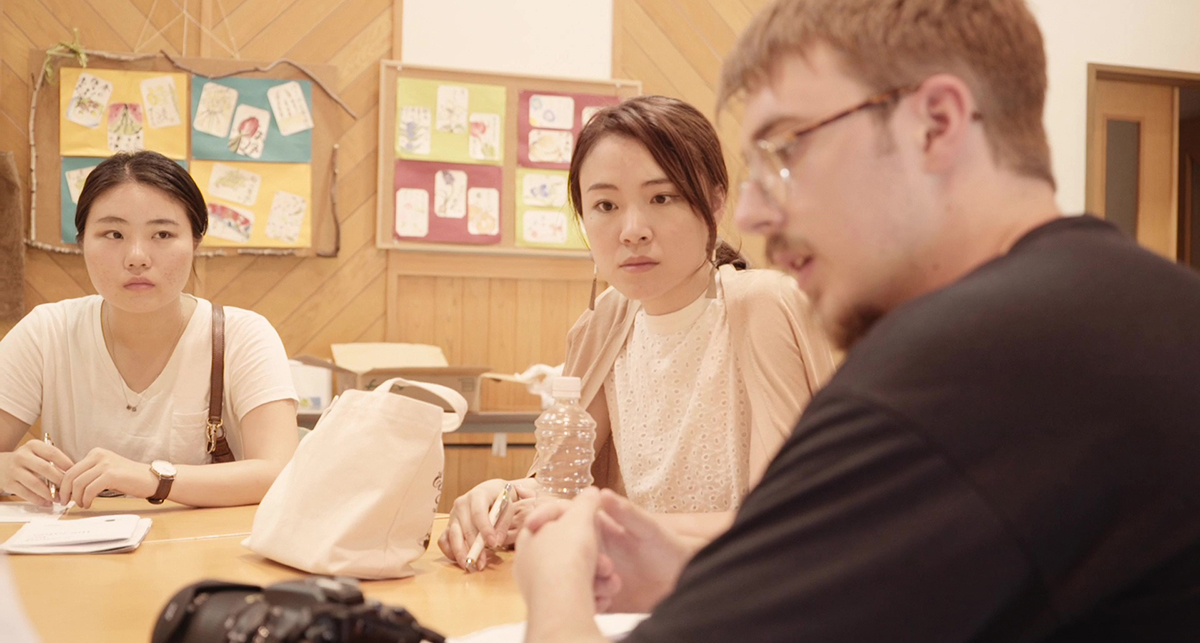
Gaining input
The job involved organising “monitor tours”. In a typical monitor tour, visitors from abroad experience what a location has to offer and complete a questionnaire. The responses help local stakeholders work out how to improve products and services.
For my tours, I generally contacted people I knew in Tokyo and asked if they would like to spend a weekend in the countryside. During my two years as a paid consultant, I must have visited Nakatsugawa with several dozen foreign friends and acquaintances.
We would typically arrive on a Friday evening, trundle around the area in a bus on Saturday, stay (or at least eat) at a farmhouse bed and breakfast, and, on Sunday, do things such as try our hand at pottery, attempt basic straw craft, plant or harvest rice and so on.

Mountain fish and chips brought a British flavour.
Cultural bridge
I soon learned that Nakatsugawa was a great place to find out more about my friends—and nearly all of it was good! But what I noticed about plonking down foreign first-timers in a village in the mountains was how quickly and positively they reacted to everything and everyone they encountered.
The only thing hindering an even more active engagement was language. If a visitor didn’t speak Japanese, then I would often be the one who interpreted. But while professional interpreters seem to glide effortlessly between languages, I experience that switch more like a manual gear change with the clutch engaged. At the very least, it’s demanding.
If the plan was to bring more inbound tourists to Nakatsugawa, something would need to be done about communication. Who would be a good candidate to speak in English and in Japanese? It occurred to me that a Japanese person whose job involved getting things done in English might fit the bill.
So, I started approaching Japanese firms about providing English-language training in the countryside, and one signed up for a sample weekend.
Over my nearly 40 years in Japan, I have often encountered circumspect behaviour among Japanese people who find themselves in unfamiliar social circumstances. But in Nakatsugawa, the corporate participants seemed to relax and engage very quickly. Even people who had told me in advance that they didn’t speak English would display a perhaps surprising alacrity to get a message across in English any way they could.
I can hazard a guess at a few reasons for this, including a social context in which linguistic errors seem pretty unimportant, or maybe the positive catalytic effect of foreigners like me blurting out whatever’s on our mind.
But, for at least some of the Japanese participants, I believe that the importance of communicating on behalf of—and in the interests of—the host community is another key factor in overcoming qualms about speaking English.
At any rate, the net result is smooth access to multiple perspectives, harnessing diverse realms of experience and expertise. Then, we are optimally primed to learn about the village, each other and ourselves. It just takes a willingness to be receptive to new inputs at each step as we explore new surroundings with new friends.
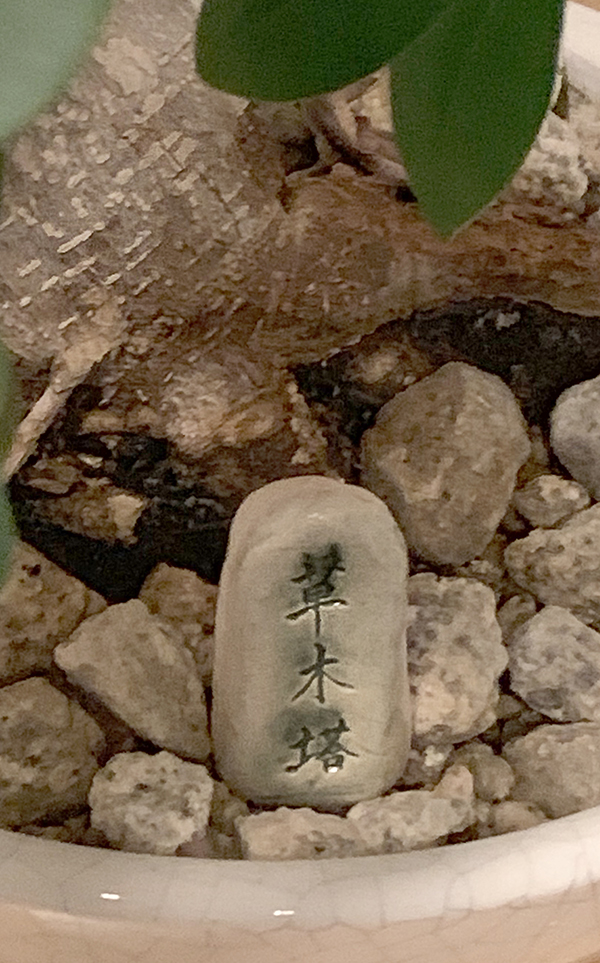
The somukoto kanji represents appreciation for nature.
Goals and chances
I regard this type of opportunity as a starting point for responsible tourism. For just a few days, village outsiders and insiders alike are nudged out of their routine comfort zones and exposed to different ways of thinking, acting and being.
What do we do with that opportunity? Well, let’s consider why anyone would want to increase the number of inbound tourists to a remote community in the first place. Is it because local residents dream of welcoming strangers from other countries? Probably not. More likely, the goals include a healthier flow of money through the local economy and a renewed sense of community vitality. Community leaders would probably be happiest with a gradual influx of people (Japanese and others) who feel they belong in the community, and who want to live, work and raise children there.
Thinking about this, I turned my attention to Nakatsugawa’s annual snow festival. Every year, each district in Nakatsugawa makes and displays a snow sculpture, children enjoy a giant snow slide, people sing and dance, we launch sky lanterns and there’s even a short fireworks display.
It’s quite a challenge to set everything up and then put it away again in a community where most people are getting on in years. So, in 2017, I started taking university students to the festival as volunteers who would offer an injection of fresh energy. Before the festival itself, the students also cleared snow from around an elderly person’s house. For doing this, the prefecture paid their travel expenses.
Student initiative
But what would happen if the prefecture was unable to pay those travel expenses? The students and I started coming up with ideas for making that money.
At their own university festival, the students decided to sell coffee and potatoes that had been matured in the Nakatsugawa snow storehouse. For my part, I started selling ceramic souvenirs of Nakatsugawa that were inspired by an item a German visitor had first made a couple of years earlier at a pottery session. It’s a Somokuto, the name given to various monuments scattered around Nakatsugawa that offer an opportunity to say please and thank you to the spirits of the pastures and mountains when entering and leaving their realm.
Through these micro social business initiatives, we confirmed that we could generate a certain amount of financial support for students visiting Nakatsugawa in the winter. The importance of sustaining that activity was driven home to me in 2018, when I led another corporate training weekend in Nakatsugawa at the time of the community’s summer snow festival.
There, at the summer festival site, were some of my students! They had decided to pay their own travel expenses and support that festival, too. This year, once again, they were present at both winter and summer festivals. A bond has been formed.
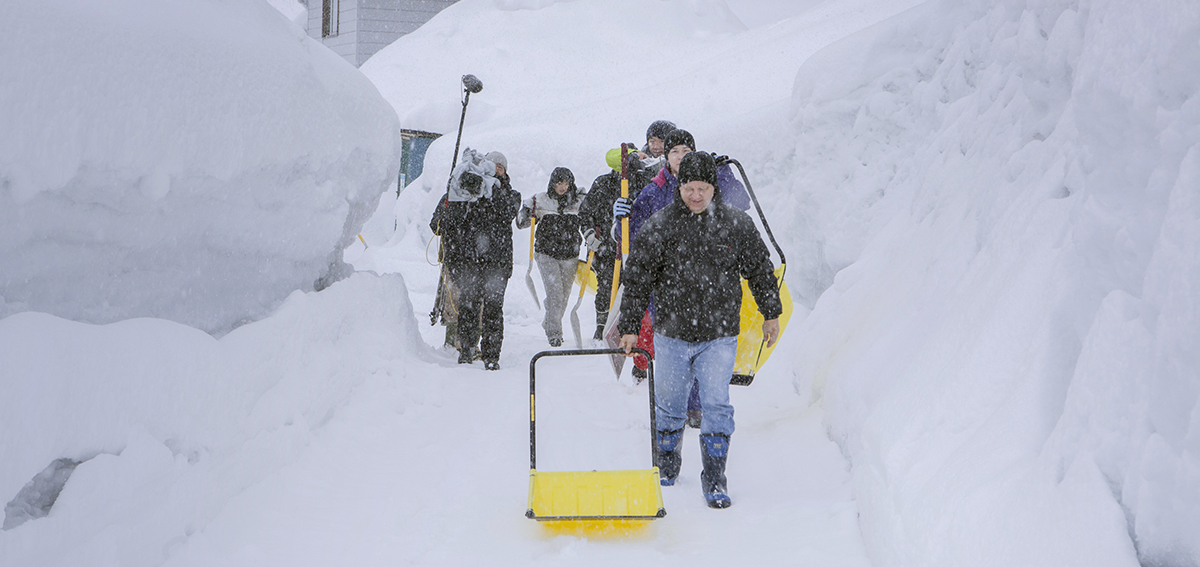
Students and others helped clear snow for local residents.
Preserve the past
I’m not going to pretend that the challenges facing Nakatsugawa have been resolved. But, with a great deal of help from my friends, we have taken one or two steps in a positive direction.
What drives me on in the Japanese countryside is an awareness that knowledge is being lost there that may be of great value to us all—knowledge from the old days about how to keep going when the going gets tough.
Rural Japan is home to tens of thousands of people who can tell us about life before convenience. They grew up in the days before paved roads, snow ploughs, a stable food supply, modern agriculture and medicine, education, and electricity for all. They remember how they survived in the face of adversity: by harnessing each person’s full potential for the sake of the community.
By the time you read this, I will have led a new type of monitor tour to Fukushima Prefecture for the first time. Once again, we will be exploring ways to engage responsibly as visitors, and, thanks to my experiences in Nakatsugawa, I now know the essence of that responsibility. It is to uphold a value, forged in hardship, that can guide us all on the path to a brighter future. I call this Japanese national value “a mind for the other”.
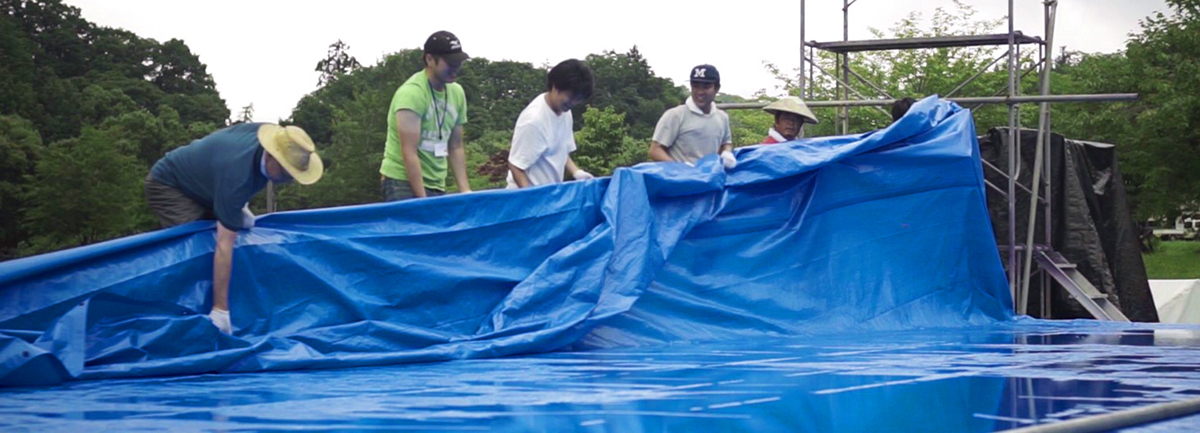
Visitors helped locals clean up after the festival.
